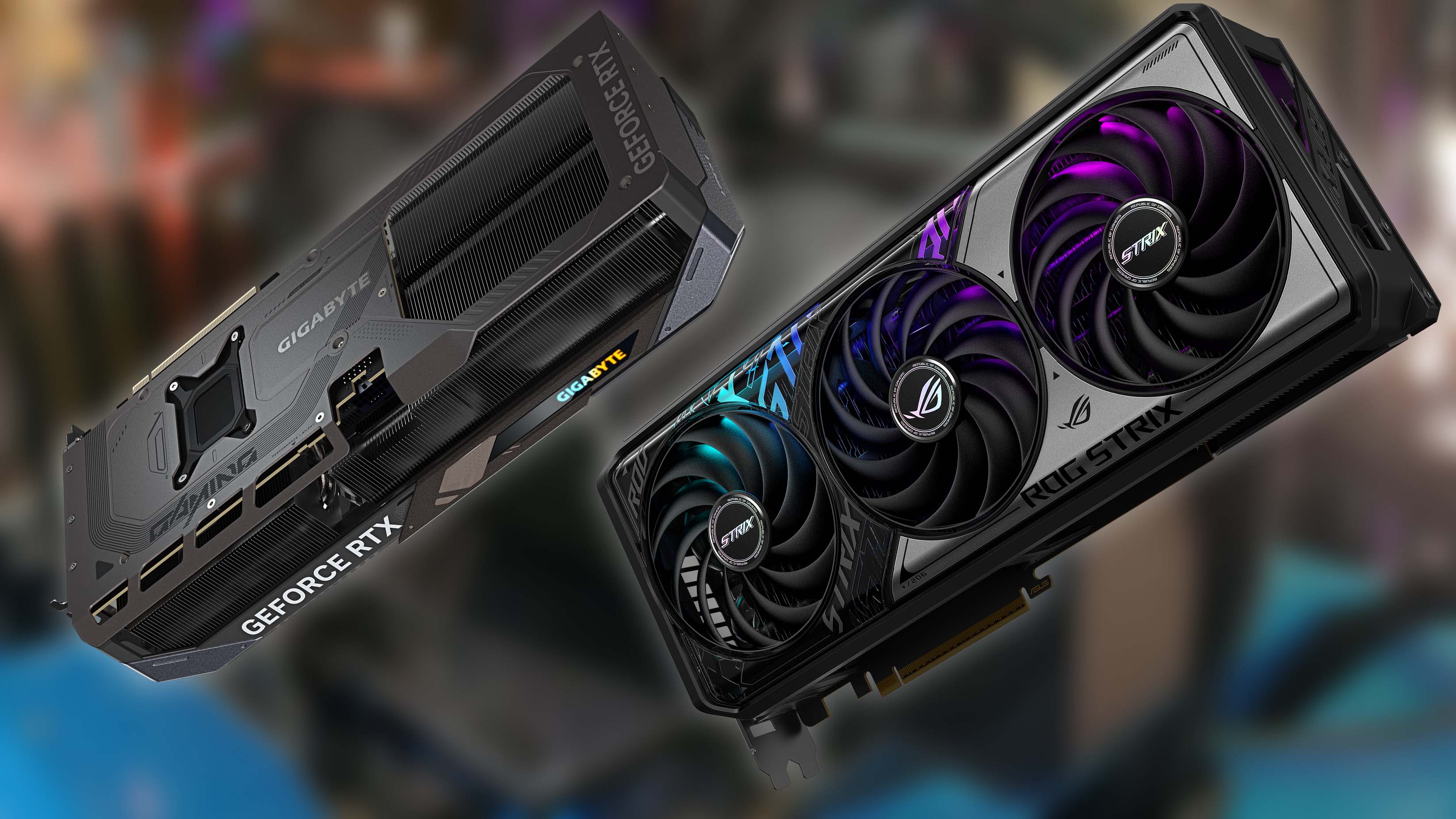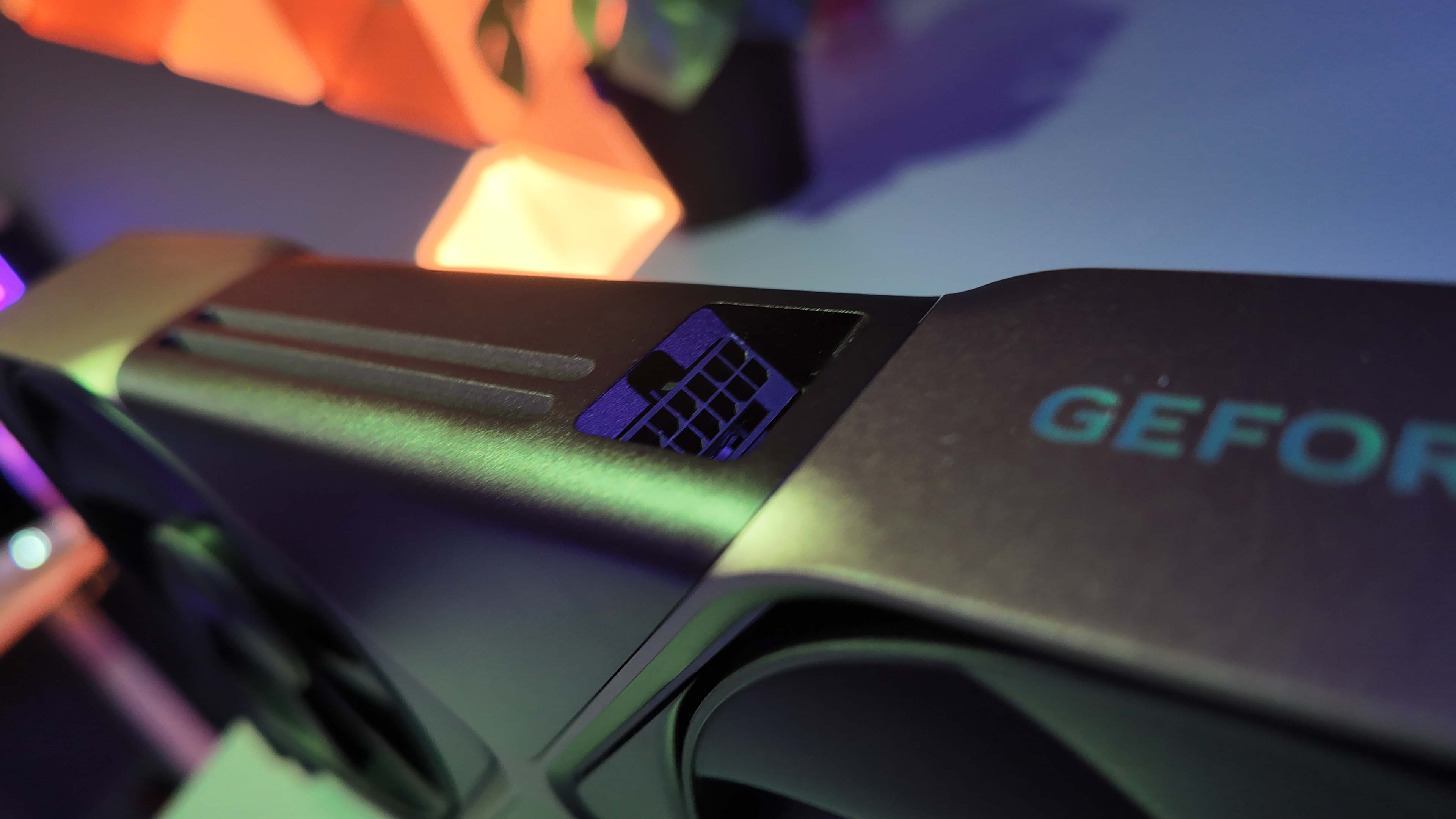There is one thing making me excited about the new Nvidia RTX 5070 Ti and no, it isn't Multi Frame Generation
If the GPU at the heart of the RTX 5070 Ti can deliver the same level of overclocking it does with the RTX 5080 we could have a champ on our hands.

The next family of cards in the new RTX Blackwell series of Nvidia GeForce GPUs is going to be an interesting one. Theoretically, the lower we go down the RTX 50-series stack, the less exciting the graphics cards look to be on paper. The generational differences in silicon look slight, and there's a general expectation that Nvidia is going to be leaning even harder on the substantial veneer of Multi Frame Generation performance to make them look good. But the binary RTX 5070 family of cards may still end up giving us the most PC enthusiast of GPUs in this entire generation.
I'm talking here about overclocking, more in the classic PC gaming sense than the sort of rather pointless number-chasing it's become. Y'know, that old school method of wringing every last drop of gaming performance out of your silicon because the price of stepping up to higher spec hardware is utterly punitive.
Before we get too deep into that, however, I do want to acknowledge that obviously the $749 RTX 5070 Ti is not mid-range silicon, not some sort of middle-order GPU for the masses. That used to be the price of a GeForce Titan card, ffs. But it is arguably the more affordable face of high-end PC graphics.
And, from my time overclocking the RTX 5080, there is a chance the RTX 5070 Ti, with the same GPU, could be a hell of a strong contender for the best overclocking card we've seen in an age. Already the RTX 5080 has delivered some pretty stunning performance on that count, allowing me to push the GPU clock well beyond the 3 GHz mark with a stable overclock, which didn't require me to drive a ton of extra voltage through the GB203 chip, either.
With the RTX 5070 Ti specs showing a clock speed well below what the RTX 5080 is delivering from its own Boost clock, I feel there really ought to be some serious headroom in that cut-down chip.
As I say, both cards are using the GB203 GPU—the RTX 5080 is taking the full chip, utilising all available 84 streaming multiprocessors (SMs), while the RTX 5070 Ti is taking hold of 70 SMs. That equates to a difference of some 1,792 CUDA cores between them, though interestingly only 768 between the RTX 5070 Ti and the old RTX 4080 of the previous generation.
| Header Cell - Column 0 | RTX 5070 Ti | RTX 5080 |
|---|---|---|
| GPU | GB203 | GB203 |
| SMs | 70 | 84 |
| CUDA cores | 8960 | 10752 |
| Boost clock (GHz) | 2.45 | 2.62 |
| Base clock (GHz) | 2.30 | 2.3 |
| Tensor core TOPS (FP16) | 176 | 225 |
| Ray tracing core TFLOPS | 133 | 171 |
| Memory | 16 GB GDDR7 | 16 GB GDDR7 |
| Memory bus width | 256-bit | 256-bit |
| Memory bandwidth (GB/s) | 896 | 960 |
| Total Graphics Power (watts) | 300 | 360 |
| Required system power (PSU wattage) | 750 | 850 |
| Power connector | 1x 300 W PCIe Gen 5 OR 2x PCIe 8-pin adapter | 1x 450 W PCIe Gen 5 OR 3x PCIe 8-pin adapter |
| Price | $749 | $999 |
In terms of the Boost clock, the RTX 5080 comes in at a rated 2,617 MHz (though that is a moveable feast given the dynamic nature of GPU frequencies these days), and the standard RTX 5070 Ti is rated at 2,452 MHz.
The biggest gaming news, reviews and hardware deals
Keep up to date with the most important stories and the best deals, as picked by the PC Gamer team.
That's a pretty healthy difference in clock speed there and, seeing as we were able to squeeze a +525 MHz offset just using a simple MSI Afterburner tweak with the RTX 5080, it's not unreasonable to think we ought to be able to spike that sub-2,500 MHz figure a lot higher, too. And it's not like the RTX 5070 Ti is being specifically limited in terms of power draw, either. Compared with the previous generation, the RTX Blackwell card has a higher power rating, at 300 W, which is already mighty close to the RTX 5080's 360 W rating.
I've not had the pleasure of slotting an RTX 5070 Ti into the PC Gamer test rig as yet, so I cannot talk from direct experience, this is all just tentatively excited expectation born of what I've seen the other card using that same GB203 silicon doing.
If we can get the same 3 GHz+ stable clock speed out of the RTX 5070 Ti then I would expect another 10%+ in terms of gaming performance out of the card. Given that Nvidia has already primed us to expect a 20% gen-on-gen performance gain for the card, slapping another 10% on top of that will put us in the same sort of frame rate bump territory as the RTX 5090 delivers.
That's the card offering the biggest generational performance increase of the RTX Blackwell cards, with a 30% 4K gen-on-gen gaming hike. Being able to push the lower spec RTX 5070 Ti card to match that percentage boost will make it a far more tempting card.

Obviously, there are things which could put a blocker in all this excitement of mine. There's a good chance there may be something in the vBIOS which stops the card from clocking so high, or there could be some limitations put on the power delivery. If there's any chance of the RTX 5070 Ti being able to be overclocked to come near the RTX 5080 in terms of gaming performance you can bet there will be some limits put in place.
It's also worth noting my exceptional overclocking numbers of the RTX 5080 came from the over-engineered, loss-leading Founders Edition version of the card, which has been specifically created with high-performance power componentry.
There is no Founders Edition card for the RTX 5070 Ti, however, and whether third-party PCBs are going to be capable of driving the GB203 GPU stably at those frequencies is still one that's up for debate. Nvidia certainly suggested I'd won the silicon lottery hitting those figures with our RTX 5080 card.
A key hint to what we might be able to expect to see from overclocking the RTX 5070 Ti would be at what level the AIBs are setting their own factory overclocked versions. With the RTX 5080, the likes of Asus and Gigabyte are setting confidently high overclocked clock speeds on their retail cards. As yet, however, we don't have details of what those companies are setting their overclocked versions at for the RTX 5070 Ti. Right now, all we get is a wee "TBD" when it comes to the final clock speed specs of these cards.
But the RTX 5070 Ti is coming out this month, in a scant few weeks. So we shall know for sure whether there is reason to be cheerful about the third-tier of the RTX Blackwell cards very soon. If it's the OC king, the clock-happy mac daddy, and you had any hope of buying one, it could be the best-value card of the lot. That's a lot of maybes, I'll grant you, but it's certainly not beyond the realms of possibility.
Yes, Nvidia might accidentally create a great tinkerers GPU and let us really tweak the twangers off it.
And what of the RTX 5070? Well, it's a smaller chip being offered a lot more power, maybe that's going to give it something to offer us via its ickle GB205 GPU. Though I am definitely less convinced about that as a possibility right now.

Dave has been gaming since the days of Zaxxon and Lady Bug on the Colecovision, and code books for the Commodore Vic 20 (Death Race 2000!). He built his first gaming PC at the tender age of 16, and finally finished bug-fixing the Cyrix-based system around a year later. When he dropped it out of the window. He first started writing for Official PlayStation Magazine and Xbox World many decades ago, then moved onto PC Format full-time, then PC Gamer, TechRadar, and T3 among others. Now he's back, writing about the nightmarish graphics card market, CPUs with more cores than sense, gaming laptops hotter than the sun, and SSDs more capacious than a Cybertruck.

